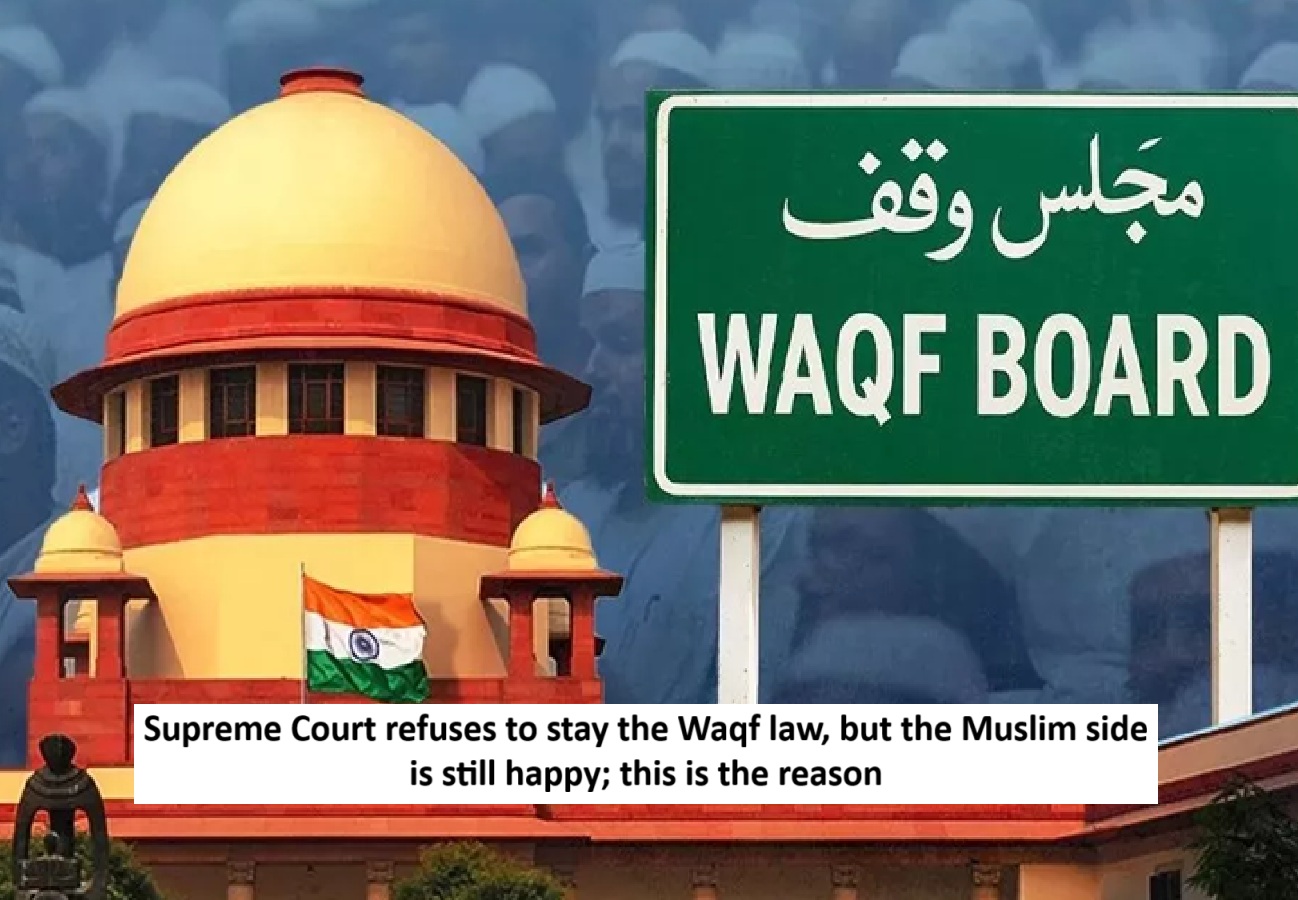
News Topical, Digital Desk : The Supreme Court refused to stay the implementation of the entire Waqf (Amendment) Act, 2025. But the court stayed the provision of Section 3 (1) (R), under which only a person who has been practicing Islam for at least five years can create a Waqf.
The court said that the stay will continue until the state government makes rules to determine how such compliance will be verified. It also partially stayed the provisions for verification of wakf property, which means that a property cannot be considered non-wakf based only on the report of the designated officer.
The court made an important remark
The apex court said, ‘The revenue records and the records of the Board shall not be changed on the basis of such reports alone. The Wakf Board shall not be evicted from their properties nor shall any changes be made in the entries in the official records till the final decision on the ownership dispute is taken by the Wakf Tribunal under Section 83, unless an appeal is filed in the High Court.’
The court said that during such proceedings no third party rights can be created in respect of those properties. The 22-member Central Waqf Council can have a maximum of four non-Muslim members and the 11-member State Waqf Boards can have a maximum of three non-Muslim members.
Apart from this, the court considered the issue of CEO of Wakf Board and did not stay Section-23, which deals with the appointment of CEO as ex-officio secretary. It said that as far as possible, the appointment of CEO should be from Muslim community. The bench said that these instructions are of interim nature and will not affect the debate or decision on the constitutional validity of the amended provisions in the final stage.
What happened when?
- 03 April: Wakf (Amendment) Bill, 2025 passed by Lok Sabha
- 04 April: Bill passed by Rajya Sabha also
- 05 April: President Draupadi Murmu approves the bill
- 05 April: AAP leader Amanatullah Khan and others challenged the law in the Supreme Court. Asaduddin Owaisi, Mohammad Javed, AIMPLB and others also reached the Supreme Court
- April 17: Supreme Court directs Centre to present its stand. Government assures that in the meantime 'Waqf y User' or 'Waqf y Deed' properties will not be de-notified.
- April 25: Centre seeks dismissal of petitions, says "complete stay" on law cannot be imposed.
- April 29: Supreme Court refuses to consider new petitions against the law.
- May 5: Then CJI Sanjiv Khanna said the case would be heard by his successor Justice BR Gavai on May 15.
- May 15: CJI Gavai fixed May 20 as the date for hearing on the issue of interim relief.
- May 20-22: The Supreme Court completed hearing on the petitions and reserved the decision.
- September 15: Supreme Court stays key provisions, but refuses to stay the entire law.
Read More: Fake ISRO scientist exposed: used to sexually exploit women through matrimonial websites; arrested
--Advertisement--

 Share
Share



